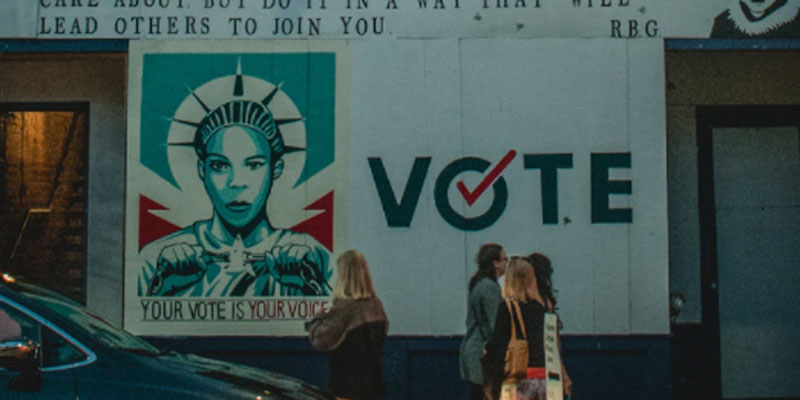Look, the APA was ideologically captured decades ago, but at least they were judicious about it. They kept their profession front and center and only advanced the ideology where it didn’t seem to interfere too much. Christopher Ferguson’s explanation of his resignation from the organization is an acknowledgment that the organization has gone off the cliff and is now primarily ideological:
[Open full post]I’ve been a member of the American Psychological Association (APA) for years, and a fellow for the past six or seven years. I sat on their Council of Representatives, which theoretically sets policy for the APA, for three years. I am just ending my term as president of the APA’s Society for Media and Technology, where I have met many wonderful colleagues. Yet, at the end of 2021, I decided to resign my membership in the APA. My concern is that the APA no longer functions as an organization dedicated to science and good clinical practice. As a professional guild, perhaps it never did, but I believe it is now advancing causes that are actively harmful and I can no longer be a part of it. …
I’d argue the 2020 moment isn’t really about race or social justice, but about a defensive elite narrative projecting ostensible morality when, in reality, consolidating power. That our psychological institutions, as well as those elsewhere in academia, journalism, and business, have participated in this is a shame on our field.
I’m not sure why so many people miss this.
It is in the nature of “progressivism” to “progress,” according to the lights of the ideology. By definition, there is no destination short of perfection. Moreover, there can’t even be a pause for evaluation as “progress” is made. Wherever a new generation finds itself as a starting point, it has to push for more, and adherents take evidence that the prior step didn’t destroy the universe as evidence that their demands won’t, either (and if they do, it was probably deserved… racist universe!).
And so, you get old-school leftist NYU professor of propaganda Mark Crispin saying:
“When I look back on what we then believed in [during the ’60s], I can’t help but be shocked—repelled by what the so-called left has become today. The two lefts have nothing in common,” Crispin told The Epoch Times, “today’s left is the far-right.”
“When I was a kid, the far-right really kind of distrusted and feared the working class. They wanted them to stay away from politics, they didn’t like labor unions. Well, who are the deplorables? That’s the working class. The constant demonization of Trump’s base is essentially an attack—an elite attack–on the working class and its refusal to follow the script dictated to them by the liberal media.” …
“The fact is that, putting aside the weird attitude of the so-called left toward black people, they have no use for the working class, they have nothing for contempt for them, and that strikes me as another symptom of their being on the far-right.”
Left, right… whatever. Those labels don’t really matter in this context. It used to be that the political debate was about how to structure society and achieve tangible objectives. The ’60s radicals and their offspring made it all about who has power.
If the workers want to take power away from progressives, then the workers must be part of the problem. Deplorables, clinging to God and guns! As minorities conclude that their interests are no longer being served by the Democrat Party, which is increasingly radical, they’ll come in for the same treatment.
This is how tyranny and atrocities happen. Paint the excuses with whatever political color you want; what it comes down to is a small minority insisting that it must get its way and using any means it must to ensure that it holds on to power.
If it makes Crispin more comfortable to understand events by concluding that the left became the right, that’s fine, as long as he defines his terms and they’re not just a way to shift blame away from people who agree with him on this or that issue. I’d suggest, however, that society makes more sense if we acknowledge that the excesses that used to be ascribed to the conservative point of view were not characteristic of “the right,” but rather characteristic of a certain psychology that will latch on to whatever platform promises power at the time.
Featured image by Herrald of Landsberg on WikiArt.
[Open full post]Not a lot of details have been provided, but Department of Health Director Nicole Alexander-Scott has given her two-week notice to leave her job:
Dr. Nicole Alexander-Scott, director of the Rhode Island Department of Health, will stay on for two weeks during the search for new leadership, McKee said. She will then act as a consultant to the department for an additional three months to ensure continuity.
Some might analyze the details for clues about what happened — McKee accepted the resignation “regretfully”! — but there’s really no way to know. Of course, the extended exit does narrow the possibilities somewhat.
Things have to have been stressful around state government recently, with everything seeming to be out of control when it comes to handling the pandemic. Consequently, you could tell a story in any direction.
If the parting came at McKee’s insistence, it could have been either amiable or not. His sense could be that she’s failing, or it could simply be that a new face is needed to change the public perception in keeping with a new phase of the pandemic response.
If it truly was a resignation and not a “resignation” (cough, cough, “firing”), Alexander-Scott might not want to deal with the stress anymore, or maybe she has another job lining up that she’d take no matter what was going on. The question is just how wildly one wishes to speculate.
On the wilder end of speculation, one might observe that the resignation comes shortly after Alexander-Scott’s old boss, Gina Raimondo, showed that her political PR machine is still working the market, with a glowing, out-of-nowhere column by James Hohmann, claiming that “Gina Raimondo is a Democrat with a promising future.”
Very likely, that’s mere coincidence, but nonetheless, the juxtaposition shows the sort of machinations that might be behind any given announcement. In politics, people are always talking behind the scenes and trying to move their pieces into place, which is one of the reasons citizens are well advised to limit what we try to have government do.
[Open full post]I haven’t seen the same thing some of my fellow conservatives have in video of the latest heated exchange between Republican Senator Rand Paul and top health bureaucrat Anthony Fauci. Paul made some good points, but he didn’t leave Fauci quivering in guilt and fear, as some would have it. Actually, it would have been better for him and for the country if he had.
Instead, with a hint of a smirk, Fauci launched his own political counterattack, claiming Paul was only going after him to help his own fundraising.
An interesting discussion could be had about the nature of politics and how politicians simultaneously generate controversy and represent the interest of constituents. (If Americans are willing to pay money to have Paul go after Fauci, that’s a pretty powerful statement that the senator is, indeed, representing them.) But that’s a secondary, meta debate.
Paul was accusing Fauci of abusing his position as a public health official to engage in efforts to discredit alternative scientific perspectives. Fauci responded to this accusation by engaging in exactly the bare-knuckle politics Paul was accusing him of. That action should go on the list of reasons Fauci ought to lose his job.
[Open full post]How does a news organization publish an entire article, by WPRI’s Steph Machado, with associated television news clip, about a tug-of-war between the mayor of Providence and the city council over vaccine mandates for police and not mention crime in the city?
The deadline is Friday for all city workers to get at least one dose of the COVID vaccine or be terminated from their jobs. Up to 80 police officers out of 450 remained unvaccinated as of last week, according to Public Safety Commissioner Steven Paré. It’s unclear how many officers have opted to get vaccinated this week ahead of the deadline.
Friday’s vote to block the mass firings, if approved by a majority of councilors, would not immediately stop Elorza from enforcing the policy. Ordinances must pass the council twice, and then the mayor can either veto or sign it into law.
Sure, we get City Council President John Igliozzi predicting that the “city will be completely lawless,” but no context about how crime has been in the city recently. One looks in vain for that familiar phrase that the mayor “has come under fire” for drive-by shootings, assaults on college students, and other incidents. Of course, one reason is that the local news media has not been providing the sort of coverage that might generate a little heat on . Whether they’re protecting Jorge Elorza or progressives’ efforts to make gang life more comfortable in Rhode Island isn’t clear.
On a related note, how does a news organization publish another article, by the AP’s Lindsey Tanner, although still on WPRI, about low vaccination rates among young children and not mention evidence of side effects from the drug? The reader gets more propaganda from the American Academy of Pediatrics, with a New York pediatrician given space to call for government mandates, but mention of any evidence supporting an alternative view is completely absent. Sure, argue that the side effects of the vaccine are rare and generally mild, but then, so is harm from the virus for children. Evidence suggests myocarditis risk for males under 40 is elevated by 7.6 times after a Pfizer booster shot (3.4 times after the second shot), compared with 2.0 times for the virus. This is clearly relevant to the vaccination decision.
The fact that information like the above is completely absent contributes not only to distrust of the mainstream media, but also to distrust of public health officials and the vaccines they’re promoting. We’re not children, and attempts to treat us as such demean our status as equal citizens and lead us to conclude insiders are trying to hide something and manipulate us.
Featured image by Climate Reality Project on Unsplash.
[Open full post]Harrison Tuttle is not merely another run-of-the-mill progressive with all of the approved leftist views. He’s also the director of the Black Lives Matter Political Action Committee in Rhode Island. So, when he takes a position on an issue, one would expect him to do so in light of the interests of black people.
His supporters ought to give some thought, therefore, to his response when Richard August asked him on State of the State whether he supports open borders, or whether “we should have some control over the flow of immigrants”:
So, I think that the design and the implementation is very different, but when we look at the overall concept, in my belief, I believe that we should have people come into this country and “open borders,” but I believe that there should be a system in which we’re able to make sure that people are safe, people have been able to receive the necessary care that they need. Yeah, I think that we should have an opportunity to have people who want to come to this country to be able to do that.
When August followed up asking what’s to keep such people from voting, given easy registration and voting processes (particularly if such immigrants are provided legal driver’s licenses), Tuttle responded:
If that person is living and participating in life in Rhode Island, I feel like that person should have the right to participate in our democracy. If that person wants to stay in Rhode Island, that person should be able to know what the governing laws are so they can change it if they don’t feel like that is what they want.
August narrowed in on the key question, “So non-citizens should have the right to vote in state, local, and national elections?”
I believe that anybody who is in this country deserves to play a part in our democracy, yes.
Naturally, the mainstream news media (whose representatives could take a lesson from August’s performance, here) don’t make this part of the story while presenting political debates about immigration of Black Lives Matter, but everything about Tuttle’s view is harmful to the very constituents he claims most fervently to represent.
Loose immigration laws that flood the job market with low-skilled labor obviously harm disadvantaged Americans who rely on those jobs to make a living. Not only does more competition mean it will be harder for them to find jobs, but the increased number of people in the market will drag down the rate of pay when they do.
Then, when this challenging job market and lower pay rate lead those folks to seek help through social benefit programs, the greater number of applicants will stretch resources thin — not only money, but providers of services, too. Yet, Tuttle clearly wants to extend such programs to illegal immigrants.
And then, if the black community begins to identify this problem and wants to work to ensure that their government better reflects their needs and values as citizens, Tuttle again would throw obstacles in their way by diluting their votes with those of immigrants who will advocate, as Tuttle says, for the “governing laws… they want.”
An important lesson from the COVID era comes into play. For decades, people have generally assumed that the interests of teachers aligned with the interests of students, but we’ve recently been taught a clear lesson that it does matter that teachers unions represent their members’ interests first. The same distinctions will emerge between citizens of one minority group and immigrants of another.
Within the boundaries of modern Rhode Island politics, it would be difficult to imagine a set of beliefs that would make black lives more difficult than those professed by this representative of Black Lives Matter.
Featured image by Drew Perales on Unsplash.
[Open full post]Well, this is what a lot of us are hoping to see:
[Open full post]The SARS-CoV-2 variant Omicron is leading to the end of the worldwide pandemic, Denmark’s chief epidemiologist predicted, meaning “we will have our normal lives back in two months.”
Tyra Grove Krause said on Danish TV 2 that a new study from Denmark’s State Serum Institute found that the risk of winding up in the hospital with Omicron is half that seen with the previous Delta variant. She also said that like the emergence of the variant in South Africa, cases will rise, then quickly fall.
“I think we will have that in the next two months, and then I hope the infection will start to subside and we get our normal lives back,” she said on Monday, according to the Daily Mail.
Robert Wiblin gets to the economics of student debt cancelation in a dead-on way with this comment:
Cancelling student debt is good but we could do more.
The government should also tax non-college grads in order to fund a $5,000 annual gift for all college grads as a way to show appreciation for how smart and productive we are.
As Glenn Reynolds quips, Wiblin is making a funny, but his proposal could very well find its way into the Democrats’ platform.
[Open full post]As a follow-up to Tolly Taylor’s sea-level scare addressed in this space yesterday, WPRI handed editorial control over Democrat Senator from Rhode Island Sheldon Whitehouse, whom the reporter permits to claim without context that Rhode Island will see nine to 12 feet of sea level rise by the end of this century.
Seriously, don’t the managers over at WPRI feel as if they have any responsibility to ensure their airwaves are used to inform Rhode Islanders, rather than propagandize them? Maybe the Target 12 news team should do an investigation into whether Whitehouse has any financial interests in promoting a carbon tax campaign that has him envisioning the construction of dikes to hold back the flood.
Taylor makes zero attempt to contextualize Whitehouse’s claim in even the most basic way, with no outside experts needed for substantiation. All one has to do is spend 10 minutes tracing the claim back to its source:
- The map WPRI shows (used as the featured image of this post) comes directly from a slide titled, “Rhode Island Archipelago,” from Whitehouse’s propaganda presentation. The blue area reflects 10 feet of vertical sea level rise, while the teal brings the height up to 12 feet.
- Whitehouse justifies these estimates with reference to what “our Coastal Resources Management Council now predicts.” This is a lie. As misleading as its press release might be, the CRMC is careful to note that this is a “worst-case scenario,” and that it, the CRMC, is adding 0.3 to 1 meter (about 1 to 3 feet) to the research of its source for regional consideration.
- CRMC’s source, the National Oceanic and Atmospheric Administration (NOAA), brings the context into even sharper focus. Table 5 of NOAA’s report doesn’t even label this as a “worst case” scenario. To NOAA, this is the “Extreme” scenario, which is what you get when even “High” isn’t scary enough. The “Intermediate” scenario is a little over three feet, and the “Low” scenario is about a single foot.
One could say, therefore, that Senator Whitehouse is an “extremist,” because he claims that the tippety top of the highest projection for which researchers (who are potentially motivated by funding and politics) can find any basis whatsoever is what “our Coastal Resources Management Council now predicts.” And one of Rhode Islanders’ major sources of news simply passes that along.
Frankly, this is malpractice, and the organization is getting to the point of fraud in claiming that it is news.
Target 12’s online title for this article is, “RI homeowners already suffering due to sea-level rise, Sen. Whitehouse says.” The casual skimmer of headlines might think this is an environmental claim, but it’s actually financial:
Whitehouse said when banks across the state consider a new 30-year mortgage, for instance, they’re starting to take into account what the property may look like at the end of that period. And for some houses, especially those along the coast, Rhode Island’s STORMTOOLS website shows many properties may be underwater.
Perhaps some enterprising lawyer should start a file of such clippings. If intentionally (or, at least, recklessly) misleading claims by the Senator Whitehouse and WPRI are leading banks to impose unreasonable costs on Rhode Islanders, perhaps they should be held liable.
[Open full post]Well, this is no surprise:
“Remote learning poses a challenge for children’s behavioral health and functioning,” study co-author Emily Hanno told UPI in an email.
“This aligns with what we know about how stress and disruption affect children’s behavior,” said Hanno, a post-doctoral researcher at the Harvard Graduate School of Education in Cambridge, Mass.
Stress caused by “disrupted, uncertain and shifting routines” can impact a child’s ability to “interact positively with others and manage their emotions and behavior,” she said.
This is on top of demonstrably worse educational outcomes. Time to stop the abuse.
[Open full post]





